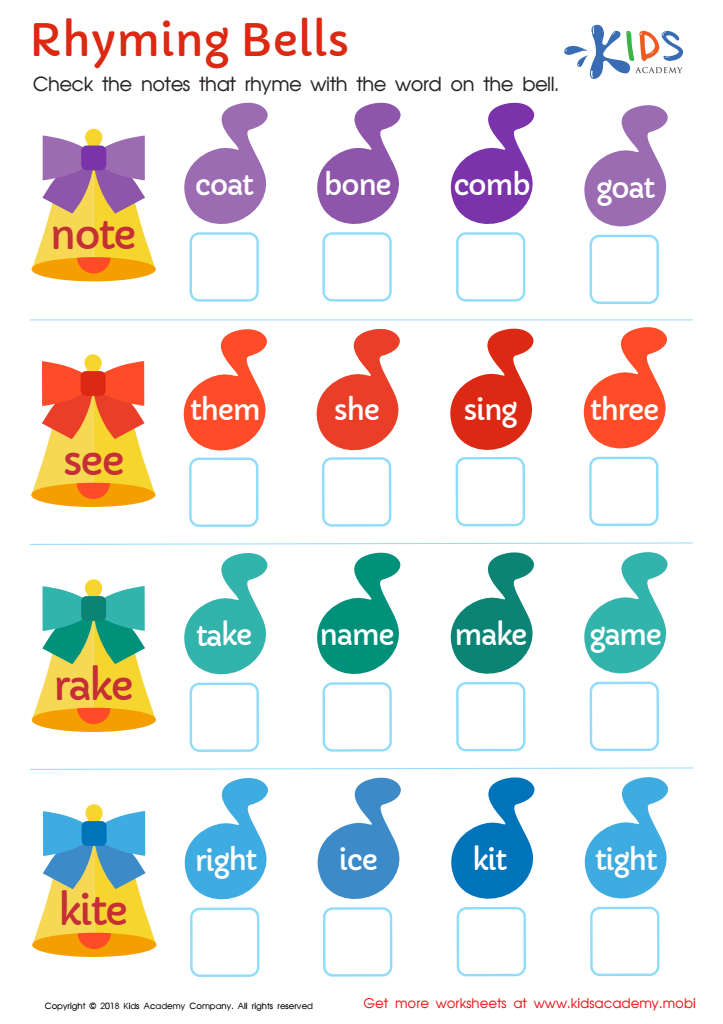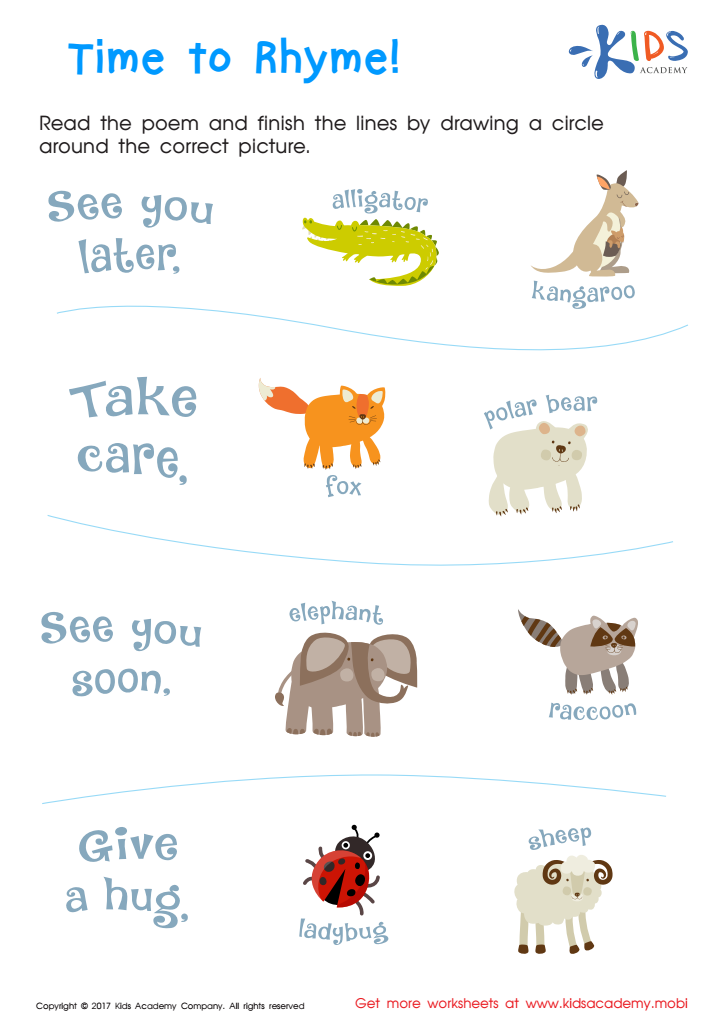Reading comprehension Normal Rhyming Worksheets for Ages 6-7
6 filtered results
-
From - To
Enhance your child's reading comprehension with our engaging Rhyming Worksheets designed for ages 6-7. These activities blend fun and learning, helping to solidify early literacy skills. Each worksheet fosters phonemic awareness, strengthens vocabulary, and builds a solid foundation for fluent reading. By recognizing and matching rhyming words, children improve their ability to decode text, boosting their overall reading confidence. Perfect for both classroom and at-home learning, these printable worksheets are crafted by educational experts to ignite a lifelong love of reading. Empower young learners with interactive and enjoyable resources that pave the way for advanced literacy.


Rhyming Words: Assessment Worksheet


Rhymes in Poems Worksheet


Rhyming Words Rhyming Worksheet


Rhyming Bells Worksheet


First Words: Picture Rhymes Worksheet


Time to Rhyme Rhyming Worksheet
Reading comprehension is a cornerstone of academic success, and integrating rhyming activities for children aged 6-7 can significantly enhance their reading development. During this critical age period, kids are transitioning from recognizing letters and sounds to reading entire sentences and understanding stories. Rhyming enhances their phonemic awareness, helping them discern patterns in words and sounds. This is essential for decoding new words and enhances their capacity to read fluently.
Furthermore, rhyming aids in memory and recall, making it easier for children to memorize and comprehend new vocabulary. The rhythmic element of rhymes also keeps learning engaging and fun, encouraging a positive relationship with reading from an early age. When children enjoy what they read, they are more likely to practice regularly, promoting better comprehension skills.
Parents and teachers should care because these skills are foundational for lifelong learning across all subjects. A child with strong reading comprehension is better able to understand and follow complex instructions, grasp new concepts, and perform well academically. Additionally, fostering these skills early on helps build the confidence necessary for independent learning in the future. Therefore, incorporating rhyming activities in early reading practices is invaluable for a child's overall educational journey.
 Assign to My Students
Assign to My Students













